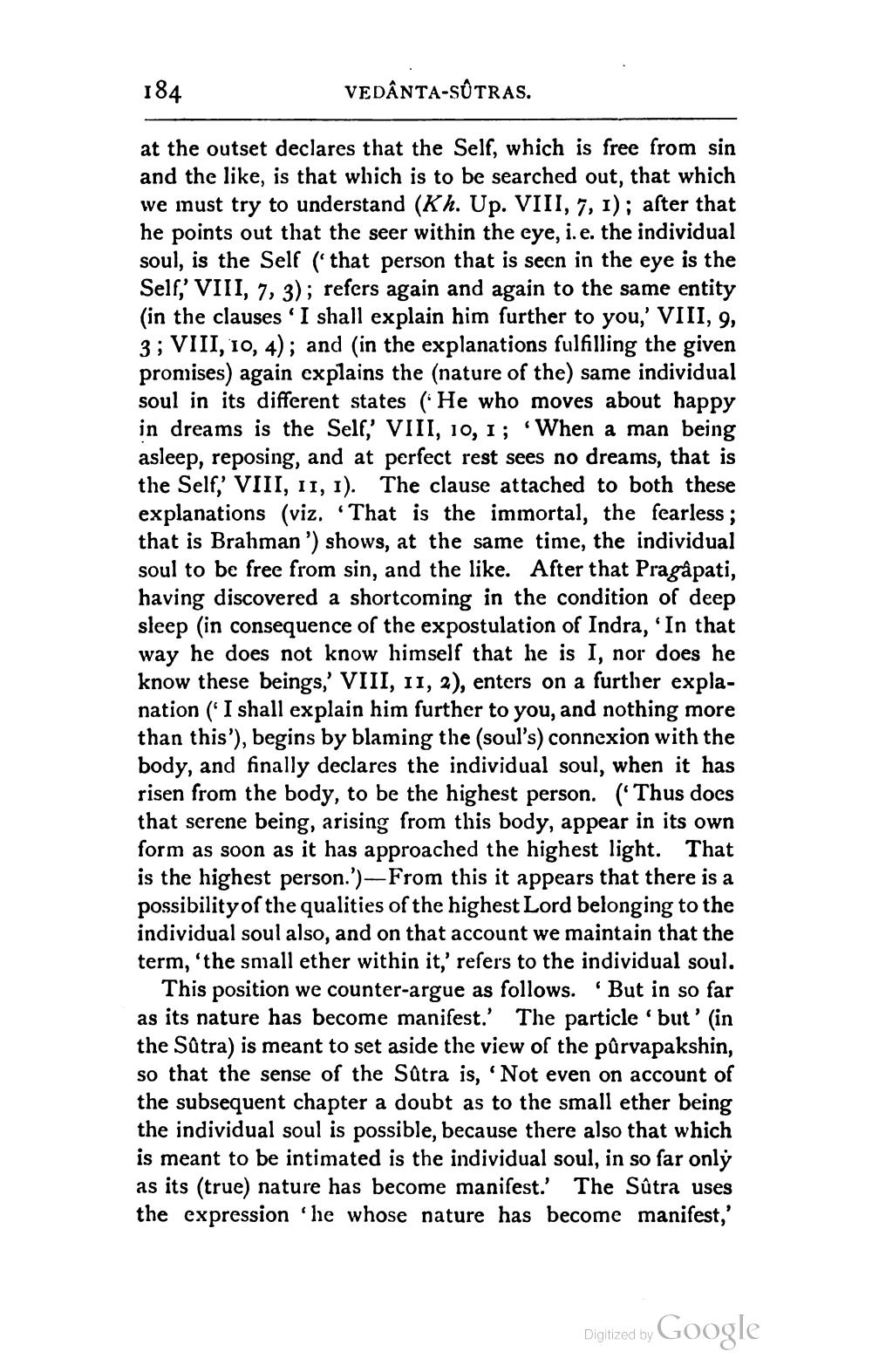________________
184
VEDÂNTA-SÛTRAS.
at the outset declares that the Self, which is free from sin and the like, is that which is to be searched out, that which we must try to understand (Kh. Up. VIII, 7, 1); after that he points out that the seer within the eye, i.e. the individual soul, is the Self (that person that is seen in the eye is the Self,' VIII, 7, 3); refers again and again to the same entity (in the clauses 'I shall explain him further to you,' VIII, 9, 3 ; VIII, 10, 4); and (in the explanations fulfilling the given promises) again explains the (nature of the) same individual soul in its different states (He who moves about happy in dreams is the Self,' VIII, 10, 1; When a man being asleep, reposing, and at perfect rest sees no dreams, that is the Self,' VIII, 11, 1). The clause attached to both these explanations (viz. "That is the immortal, the fearless; that is Brahman ') shows, at the same time, the individual soul to be free from sin, and the like. After that Pragâpati, having discovered a shortcoming in the condition of deep sleep (in consequence of the expostulation of Indra, 'In that way he does not know himself that he is I, nor does he know these beings,' VIII, 11, 2), enters on a further explanation ('I shall explain him further to you, and nothing more than this'), begins by blaming the (soul's) connexion with the body, and finally declares the individual soul, when it has risen from the body, to be the highest person. (Thus does that serene being, arising from this body, appear in its own form as soon as it has approached the highest light. That is the highest person.')— From this it appears that there is a possibility of the qualities of the highest Lord belonging to the individual soul also, and on that account we maintain that the term, 'the small ether within it,' refers to the individual soul.
This position we counter-argue as follows. But in so far as its nature has become manifest.' The particle 'but' (in the Satra) is meant to set aside the view of the pûrvapakshin, so that the sense of the Sûtra is, ‘Not even on account of the subsequent chapter a doubt as to the small ether being the individual soul is possible, because there also that which is meant to be intimated is the individual soul, in so far only as its (true) nature has become manifest. The Sûtra uses the expression 'he whose nature has become manifest,'
Digitized by
Digized by Google




